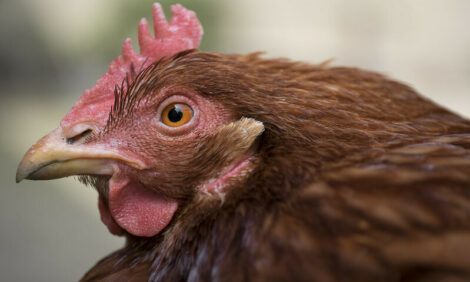



Using Natural Enemies against Resistant Bacteria
NETHERLANDS - In the foreseeable future, the use of antibiotics in poultry farming can be minimised by using natural enemies of harmful bacteria. This became clear during the Romijn lecture at the seminar of the Dutch branch of the Dutch branch of the WPSA in Utrecht on 8 December.For years, the increase of antibiotic-resistant bacteria in livestock farming and in humans has been linked to poultry meat and eggs. After the contamination of vegetables and fruit with the EHEC bacterium, poultry manure was added to the list of causes. The result is that consumers are increasingly driven by fear in their choice of foods, said Dr Simone Hertzberger in her presentation 'Changing food safety. Current emerging (microbial) threats and the role of the retail sector'. She said that supermarkets increasingly require the production and processing of those consumer products to be completely transparent.
Against the background of an increase in antibiotic-resistant bacteria, much work is being done to develop remedies that can put a stop to this growth. The first successes have been achieved by the Wageningen-based biotech company, Micreos. Its CEO, M. Offerhaus, stated in his presentation that the use of bacteriophages (phages) has been found to be successful. Phages are about 100 times smaller than bacteria but are their natural enemies. Every day, half of all bacteria on earth are killed by phages. They are bacterium- (species) specific and do not affect humans, animals or plants. Moreover, they do not affect the characteristics of processed foods.
According to Professor R. Ducatelle of the University of Ghent in Belgium, a more likely medium-term solution is creating healthy bacterial intestinal profiles. For this, more attention to the non-digestible components of the feed is needed, because these promote the growth of bacteriocins. These bacteriocins are the natural enemies of harmful bacteria and provide a healthy bacterial balance in the intestines. If this is the case, the use of antibiotics will no longer be necessary and the excessive growth of antibiotic-resistant bacteria will be reduced. Professor Ducatelle emphasised that the knowledge about these bacteria and their role is rapidly increasing and that within five years many solutions to intestinal problems will be available.
Thus a positive picture was painted of the possibilities to reduce the use of antibiotics in poultry farming. The use has already started to decrease considerably and an increasing number of farms show that they can do without. However, this does not alter the fact that the government has to give space for further progress. The regulations, or lack of, serve as a restriction. However, as became clear in the discussions, the main cause for concern is that the approach to antibiotics and resistant bacteria has become a political matter instead of a scientific one.








